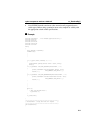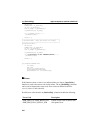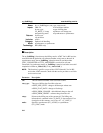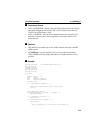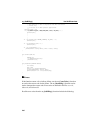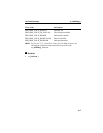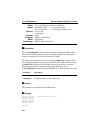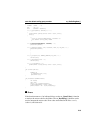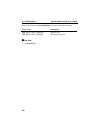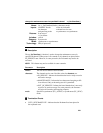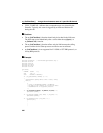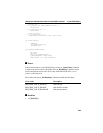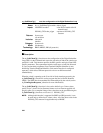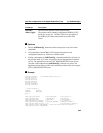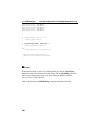
sets the default calling party number cc_SetCallingNum( )
219
{
LINEDEV devhdl = 0;
CRN crn = 0;
char *devname = “dtiB1T1”;
if ( cc_Open(&devhdl, devname, 0)<0)
{
printf(“Error opening device: errno = %d\n”, errno);
exit(1);
}
/*
* Using cc_SetCallingNum(devhndl, “9933000”)to
* set default calling party number
*/
if ( cc_SetCallingNum(devhdl, “9933000”) <0)
procdevfail(devhdl);
if ( cc_MakeCall(devhdl, &crn, ”9933000”, NULL, 30, EV_SYNC)<0)
procdevfail(devhdl);
.
.
.
.
.
if ( cc_DropCall(crn, NORMAL_CLEARING, EV_SYNC)<0)
callfail(crn);
if ( cc_ReleaseCall(crn)<0)
callfail(crn);
if ( cc_Close(devhdl)<0)
printf(“Error closing device, errno = %d\n”, errno);
}
int callfail(CRN crn)
{
LINEDEV ld;
cc_CRN2LineDev(crn, &ld);
procdevfail(ld);
}
int procdevfail(LINEDEV handle)
{
int reason;
char *msg;
reason = cc_CauseValue(handle);
cc_ResultMsg(handle, reason, &msg);
printf(“reason = %x - %s\n”,reason,msg);
}
!
! !
!
Errors
If the function returns < 0 to indicate failure, use the cc_CauseValue( ) function
to retrieve the reason code for the failure. The cc_ResultMsg( ) function can be
used to interpret the reason code. Error codes are defined in the files ccerr.h,
isdnerr.h, and isdncmd.h.



